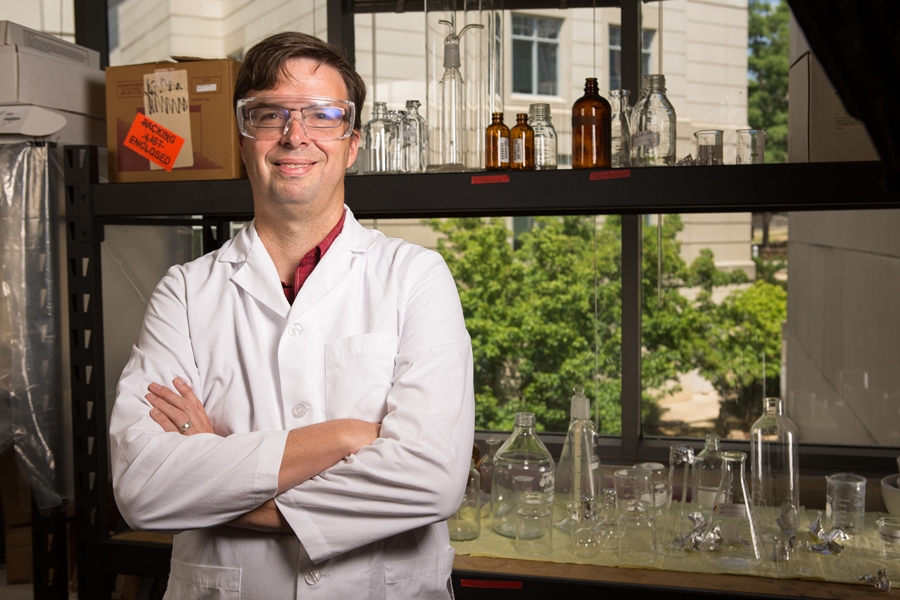
FAYETTEVILLE, Ark. – Chemical engineering associate professor Jamie Hestekin has received two grants totaling $145,250 from a local technology development firm to help the company convert woody biomass into bio-oil and eventually liquid biofuel.
The funding will support chemical engineering doctoral student Blake Johnson, who will perform research at Process Dynamics, a technology development company that focuses on petroleum refining, hydro-processing of fuels and the manufacturing of oils and waxes. When finished, the project will yield several research articles and help Johnson satisfy requirements for a doctoral degree in chemical engineering.
Further, the project will support George Marshall, a master's student working on ways to make the technology more inexpensive, and Karla Morrissey, an undergraduate who recently won a Goldwater Scholarship for her proposal to do a life-cycle assessment on the woody biomass conversion to biofuels.
Process Dynamics has done significant testing toward converting woody biomass into bio-oil and liquid biofuels. These efforts have led to a conversion rate as high as 60 percent. Woody biomass is defined as trees, plants, needles and leaves and other woody parts grown in a forest, woodland or rangeland environment. As the by-products of forest management, they are used to produce bioenergy and a range of bio-based products, including lumber, paper, furniture, ethanol and animal feedstocks.
Guided by Hestekin and Michael Ackerson, associate professor of chemical engineering, Johnson will conduct studies that will help the company understand the nature of the conversion and what conditions lead to a more optimal suite of bio-oils. Their ultimate goal is to determine the maximum amount of conversion possible. In three years, the overall length of the project, they hope to achieve a conversion rate greater than 60 percent at significantly less cost than current procedures.
Marshall and Morrissey are trying to make the intermediates of production more efficient and environmentally friendly by adding membrane removal of water and performing a life-cycle assessment of the entire process.
Much of Hestekin's research focuses on the extraction of oils and carbohydrates from algae and their ultimate production into both biodiesel and butanol. Projects in this area include enhancement of butyric acid fermentation with electrodeionization for continuous product separation, direct conversion of algae into butanol, the production of biodiesel from lipids using continuous supercritical methanol esterifications, and the extraction of carbohydrates and lipids from algae.
Hestekin holds the Jim L. Turpin Endowed Professorship in Chemical and Biochemical Separations.
Contacts
Jamie Hestekin, associate professor
Department of Chemical Engineering
479-575-3492, jhesteki@uark.edu